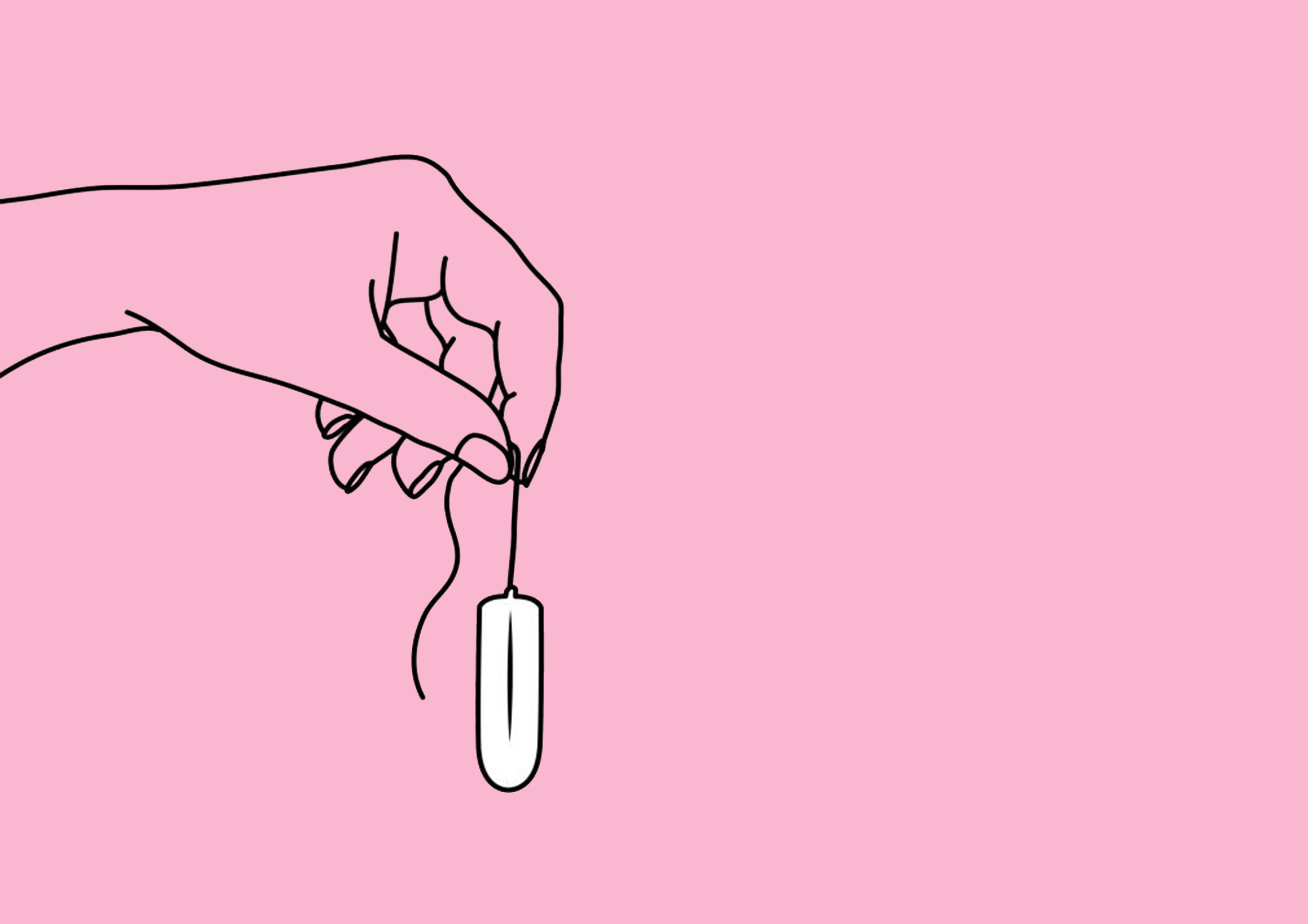Bloody Brilliant: The Period Lowdown: An Introduction to Menstruation
Something that’s really important to us at The Unedit is maintaining and amplifying important conversations in a way that you may not typically find them elsewhere – and that oftentimes coincides with a lack of general awareness. When it comes to periods, a shockingly small number of people received what you would call a sufficient amount of education, which largely is at fault of the education system and the societal stigma around menstruation. With that, we wanted to offer a safe, detailed insight into periods for our readers, so we teamed up with organic tampon company, OHNE, for our latest series: Bloody Brilliant. Each month we’ll be tackling a different aspect within the world of menstruation and with the help of experts, we’ll be taking you far beyond the usual ‘time of the month’ spiel that your awkward school nurse might have given you.
So you bleed for a week and don’t die…
Let’s get one thing out of the way for any newbies/people like this dude: a ‘period’ refers to when a person with a uterus bleeds from their vagina. On average, a period lasts 3-7 days and occurs roughly once a month, with the average cycle length being 28 days (which always makes me think of the Zombie movie franchise, 28 Days Later, a pretty appropriate association for my gut-wrenching period pains if you ask me).
A period is also known as menstruation, menses, and a bunch of euphemisms ranging from the eye-roll worthy (‘Aunt Flo’) to the gross (‘on the blob’) and the downright infuriating (‘blowjob week’). At OHNE, we pretty much hate all of these and love shouting the word period from any and every rooftop we can find. Because periods are not shameful and they shouldn’t be shrouded in mystery. So in this series we’re going to be learning about all the period-related things they should have taught us in school, unpacking the stigma, and refusing to be ashamed of the word period? Sound good? Good.
The refresher course
So consider this article your cram sheet, starter pack, or jumping off point for the weird and wonderful world of periods. We know that not everyone (read: almost no one) was lucky enough to get the menstrual health education they deserve, which is all kinds of not-okay and feminist-rant-inducing, but we’re going to do our best to get you your A+ in Periods 101.
Why do we bleed from our vaginas?
The menstrual cycle, to put it bluntly, is the process your body goes through to prepare for a baby. Every. Single. Month. Does your body care if you don’t wanna have kids yet, or ever? Nope. Does your body care if you’re not having unprotected sex with cis men, or if you’re not having sex, full stop? Nooope. Every cycle, your uterus lining will plump up in anticipation of you getting knocked up and, if and when that doesn’t happen, it begins the process of tearing down that lining, which results in the cocktail of blood, endometrial tissue, cervical mucus, and vaginal secretions we know as a period. Yup, it’s not actually just blood your tampon is collecting, which is why those you only bleed about a shot glass’ worth of blood every period! ‘fun facts’ can be so baffling to those of us who gave ever changed a menstrual cup or bled through a tampon overnight.
Who experiences them?
Anyone born with a uterus - so this covers many women, trans men, and non-binary people, but only once they’ve hit puberty and before they’ve gone through the menopause (which, put simply, is what your body goes through when your body decides your baby-making days are over. It usually happens between the ages of 45 and 55). Puberty for these groups usually occurs between the ages of 10 and 14 but young people can start their periods as early as 8 and as late as 16.
Hormones
The main three sex hormones are oestrogen, testosterone, and progesterone.
Oestrogen rises throughout the first half of your cycle, peaking in the very middle (which would be day 14 in a 28-day cycle) when ovulation occurs. Ovulation is the release of an egg from the fallopian tubes. I refer you back to the fact that your body is trying to get you pregnant; around the time of ovulation, oestrogen swoops in to totally wing-woman you. This is likely when you’re most likely to feel confident, attractive (it literally clears up your skin and makes your face more symmetrical) and, well, horny.
Testosterone peaks just after ovulation. It’s responsible for helping you to feel focused and motivated as well as helping to strengthen your bones and muscles. Oh and it also wants you to get some action around ovulation.
Progesterone doesn’t care quite so much about your sex life. In fact, it’s known as the ‘sedating’ hormone and is responsible for the sudden drop in energy levels and mood you likely experience as your enter the second half of your cycle. You’re likely to experience mood swings, tiredness, and increased appetite (because your body likes to eat for two just in case you got pregnant at ovulation… cool, thanks, cool…)
If you want to know a little more about your hormones, and exactly why they have such a powerful effect over you at various stages of your cycle, check out period-genie Maisie Hill’s ultimate guide to your hormones on our website.
Important sidenote: Hormones really are powerful, important, and worthy of observation and respect. You can learn a lot about your body at what to expect at various stages of your cycle by tracking your period and reading up on your body. Also, anyone who dismisses the way you’re feeling or acting because ‘it’s just the hormones’ needs to pipe tf down, because hormones affect basically everything and to say it’s ‘just hormones’ to someone who’s feeling low or irritable is pretty much the same as saying ‘it’s just your muscles’ to someone who’s aching after a gym session.
How to manage your period
Again, we’ll cover all this in plenty of detail later on the series, but here’s a list of some of the period products you can buy to manage your period.
Tampons - both applicator (usually a plastic or cardboard tube that helps you push it up your vagina) and non-applicator (you just push it up with a finger. A clean one).
Pads - winged, unwinged, night-time, maxi, slim… there are heaps of options for pads for any and every flow. It’s common for young people to sue pads when they first start their periods.
Panty liners - a smaller version of a pad, used for very light period days (which usually happens towards the end of your period) or to protect your underwear from any potential spotting (when you get tiny amounts of bleeding between periods. This is not uncommon but worth checking which a doctor if it’s happening a lot)
Period pants and reusable pads - they pretty much do what they say on the tin. They function in much the same way as pads but they’re usually better for the environment and you can wash them between periods for reuse.
Menstrual cups - they’re usually made of silicon and collect your period blood. They can be left in for longer periods of time than tampons (up to 12 hours) and are also reusable.
Menstrual discs - less well known than the menstrual cup, this functions in much the same way but is not reusable so generally considered a less sustainable option. They’re apparently safe to wear during sex and are much smaller than a cup, having no ‘stem’, which, on a cup, is there to help you remove it.
This is a very (very, very) basic introduction to periods, hormones, and wtf is happening with your body. As mentioned, we’re going to be exploring every great and gory detail related to periods and your menstrual and reproductive health right here on The Unedit in the coming months, so let us know your burning questions (your burning anything) and we’ll try to answer them for you. In the meantime you can check OHNE out right here.








